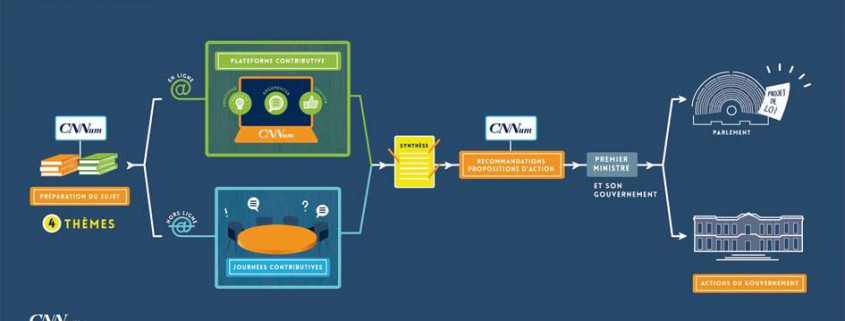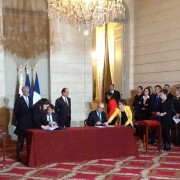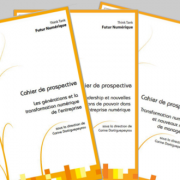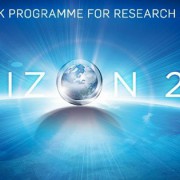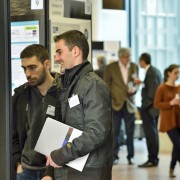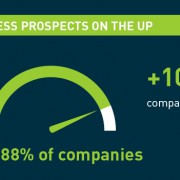National debate: the future of our society in a digital age
‘Everyone can take part in building the digital society in which they wish to live.’ On Saturday 4 October, we initiated a national digital debate, calling on the French people to give their opinions about four subjects linked to the social transformations caused by the digital age. Christine Balagué is a researcher at Télécom Ecole de Management, coordinator of the ‘Social Networks’ Chair at IMT and ‘freedoms and fundamental rights’ vice-president of the Conseil National du Numérique (CNNum – National Digital Council), in charge of this debate.
What exactly is this great digital debate?
Christine Balagué: The National Digital Council (CNNum) was called upon by the Prime Minister to organize a national debate on the big issues of the digital age. The debate was launched on 4 October at the NUMA, in the presence of Prime Minister Manuel Valls, Thierry Mandon, Secretary of State for Administrative Reform and Simplification, and Axelle Lemaire, Secretary of State for Digital Affairs. This debate is being conducted online and is open to everyone: citizens, associations, entrepreneurs, researchers, local elected officials, administrators, think tanks. Everyone can take part in building the digital society in which they wish to live. As an independent and representative committee for the digital ecosystem, the members of the CNNum will guarantee the transparency of discussions and will be proactive at the outcome of the debate.
The approach of this debate is to listen to the opinions of contributors to the digital ecosystem, to representatives of civil society and to ordinary citizens, who will share their differing perspectives on the debate’s four central themes: ‘Growth, innovation, disruption’, ‘Loyalty in a digital environment’, ‘Digital transformation of public action’, and ‘Society and the digital metamorphosis’. The first two topics have been open to contributions since 4 October. Subjects 3 and 4 will be open from November onward.
This debate is about digitalization, but it is also taking place online – in the digital world. What are the benefits of such a large-scale participative approach?
C.B. We are in the middle of a very specific period: the Internet was developed in France 20 years ago, and the revolution has already happened. Nowadays, digital issues affect everyone. Moreover, the way the Internet is used is constantly being renewed and becoming more complex; so these issues are here to stay. The period in which we find ourselves forces us to think about the construction of a sustainable digital society and a strong digital economy. Several issues arise: how to create ecosystems of innovation with researchers, start-ups, companies, encouraging the emergence of an innovative French digital economy with international scope? What model should we adopt so that the digital world can develop while respecting privacy and individual freedoms, loyalty between its contributors, in a world where big data, algorithms and connected objects are and will continue to be dominant? What can we do to ensure that healthcare, education, and society more generally, undergo a positive metamorphosis through digitalization? These questions concern everyone. The debate will enable everyone involved to express their opinions and to contribute to this discussion, which will then be transformed into CNNum’s proposals to the government.
What is the interest of this great debate to professors and students, notably those in IMT graduate schools? How can they contribute in particular?
C.B. Institut Mines Télécom, by virtue of its 10 schools, its professors, its 13,000 students, and by virtue of the Fondation Mines-Télécom, is at the very center of the discussion on digital issues. Everyone can contribute on an individual level. Professors in particular can contribute as experts in their fields. Certain professors can also suggest organizing student contributions in certain classes. For IMT as a whole, a strategy is being developed for the organization of events in the schools, while also working with its Foundation and research chairs, in order to propose a more ‘structured’ contribution.
To find out more about the national digital debate – Contributions from 4 October 2014 until the end of January 2015

